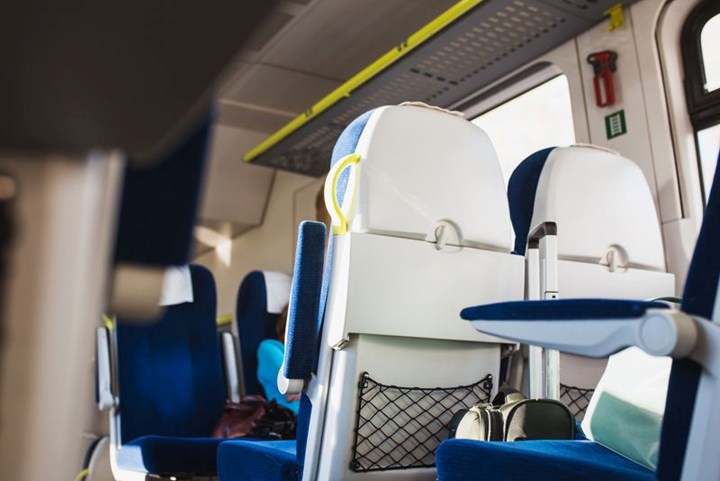Röchling launches sustainable vacuum forming materials for railway structures
Röchling’s Maywoflamm plus RC and Maywoflamm NFPA RC can be manufactured using up to 70% recycled material, making it possible to increase sustainability in customer applications.

Röchling Maywoflamm materials with high recycled content for railway applications.
Photo Credit: Röchling
Röchling Industrial SE & Co. KG (Bad Grönenbach, Germany) reports that it is expanding its portfolio of flame-retardant materials for use in railway technology applications with two new sustainable products, Maywoflamm plus RC and Maywoflamm NFPA RC. Both products can be manufactured using up to 70% recycled material, making it possible to increase sustainability in customer applications. Maywoflamm plus RC complies with the European railway standard EN 45545-2:2020, classification R6/HL2; Maywoflamm NFPA RC is testing according to NFPA 130 and BSS7239:1988 and can therefore be used in the American region. Both materials are characterized by their low weight compared to metallic materials and their high mechanical strength.
“We have defined sustainability as one of the most important strategic areas for the future,” explains Franz Lübbers, CEO of Röchling Industrial. “It is important to us to take responsibility and contribute to a sustainable future. Of course, we have focused on the needs of our customers.” The high recycled content helps customers achieve their sustainability goals. The use of high-quality recycled material conserves resources and closes loops.
“With the launch, we are offering our railway sector customers sustainable products that meet the relevant requirements for use in railway technology applications,” says Simon Kathmann, head of sales and marketing at Röchling Industrial Allgäu. “We are excited to now bring these sustainable alternatives to the market.”
Related Content
-
Recycling end-of-life composite parts: New methods, markets
From infrastructure solutions to consumer products, Polish recycler Anmet and Netherlands-based researchers are developing new methods for repurposing wind turbine blades and other composite parts.
-
JEC World 2023 highlights: Recyclable resins, renewable energy solutions, award-winning automotive
CW technical editor Hannah Mason recaps some of the technology on display at JEC World, including natural, bio-based or recyclable materials solutions, innovative automotive and renewable energy components and more.
-
CirculinQ: Glass fiber, recycled plastic turn paving into climate solutions
Durable, modular paving system from recycled composite filters, collects, infiltrates stormwater to reduce flooding and recharge local aquifers.













